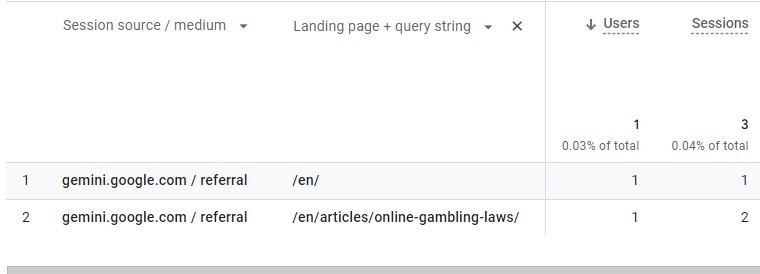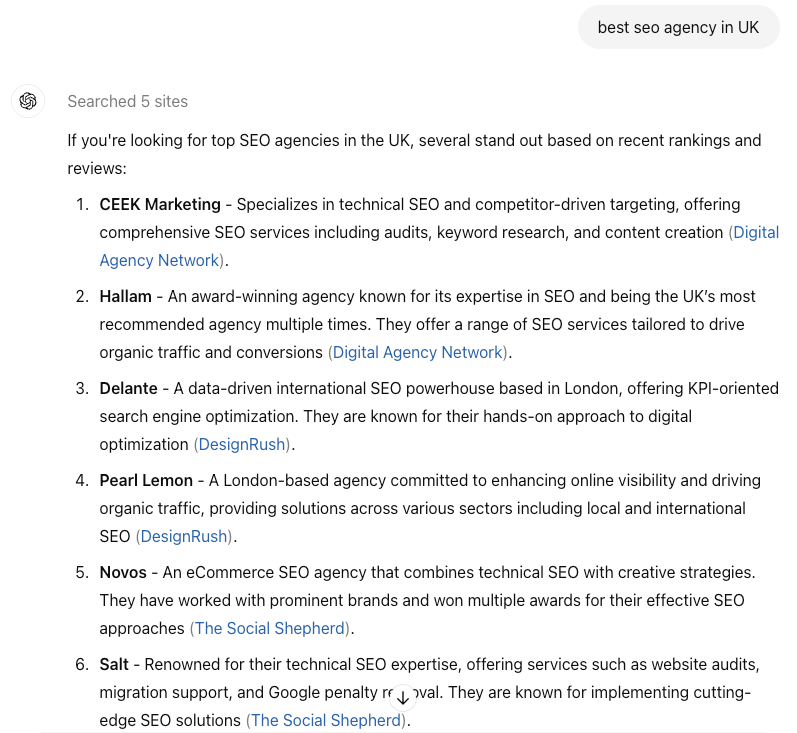As SEO specialists, our role involves constant data analysis, seeking optimization opportunities, and staying updated with market trends. In 2024, perhaps a transition from SEO (search engine optimization) to SXO (Search Experience Optimization) might be necessary. Traditional SEO focuses on search engines, but SEOs now need to consider UX (user experience), UI (user interface), behavioral metrics, and AI advancements.
With OpenAI's introduction of SearchGPT, an AI-driven search engine without clear ranking criteria, it is evident that SEO specialists must adapt to these changes to keep up with evolving user behaviors and technologies.
Challenges Faced by SEO Specialists
Statistically, in 2024, 82% of desktop users and 95% of mobile users searched on Google, according to Statista. Now, in mid-2024, many tech-savvy people already use ChatGPT and Gemini (formerly known as Bard) daily to get the answers they are looking for. Despite all the capabilities that AI models provide, such as:
- Programming
- Idea generation
- Text-to-speech
- Text-to-video
They are capable of answering simple questions very neatly, which people tend to like. Thus, if the AI boom continues, SEO specialists and companies looking for such experts will need to adapt.
The Evolution of Search: From SEO to SXO
For a while, expert SEOs have already been working closely with UX/UI, data analytics, and AI-driven tools to improve websites, but that might not be enough. SEOs notice that Google’s search engine prioritizes user-oriented content, visuals, and domain authority as criteria for better ranking. Specialists are aware of this and know what to do.
OpenAI, Google, and Microsoft, with their corresponding technologies - SearchGPT, Gemini, and CoPilot- are introducing new ways for people to search the internet, which might make a big difference in the near future.
Re-introducing an already-known term in the industry:
SXO (Search Experience Optimization) - reflecting a broader focus on optimizing the entire search experience, not just search engine rankings.
Businesses already receive traffic attributed to AI models. For instance, Fortis Media, a digital marketing agency that markets itself by constantly publishing SEO-related content, acquired users not from paid campaigns or organic search but from Gemini as direct traffic. A user asked Gemini a specific SEO question, and Gemini composed an answer with a link to a Fortis Media article answering that question.

This is a perfect example of what we can expect in the future on a larger scale. More and more often, people will encounter AI models that decide, based on currently unknown criteria, what to display to the user. SEO experts can only speculate about the factors that influence AI models, or can they?
Testing ChatGPT Criteria
According to OpenAI’s help center, OpenAI gathers a vast and diverse dataset from the internet, including websites, books, articles, and other text sources. Thus, the answers we get from ChatGPT are based on that. But with each update, ChatGPT becomes more and more versatile. It can analyze, browse the internet, and provide up-to-date information for the user. What if we try and test that?
Case Study: Analyzing ChatGPT's Criteria for Listing "Best SEO Agency in UK"
After having a conversation with ChatGPT with a prompt “best SEO agency in UK,” the chatbot listed out the top 8 best SEO agencies according to certain criteria.

ChatGPT answer for the prompt "Best SEO agency in UK"
After asking it, “What are the criteria you were basing this research upon?” the chatbot listed:
- Reputation and Awards
- Client Reviews and Testimonials
- Service Offerings and Specializations
- Notable Clients and Case Studies
- Industry Expertise and Innovation
- Transparency and Communication
But that sounded a bit vague, so I continued the conversation with the prompt “What type of websites are you referencing here?”. All of the pages that the chatbot referenced are related to affiliate marketing or provide lists themselves. But when asked, “How can a new agency in the UK be listed on ChatGPT when someone else asks this question?” the answer became too constructive and vague again.
Key Takeaway
To be visible on ChatGPT as an agency, it is clear that the agency needs to be displayed on major local affiliate websites in their corresponding category. This is one of the ways SEOs can start and utilize AI to identify criteria that it follows.
Transitioning from SEO to SXO
The digital marketing landscape is experiencing a significant shift from traditional SEO to Search Experience Optimization (SXO). This transition is driven by changing user behaviors and advancements in AI technologies. SEO specialists must now consider UX/UI design, behavioral metrics, and AI trends to stay relevant.
The rise of AI-driven search engines like SearchGPT and Gemini underscores the importance of optimizing the entire search experience rather than focusing solely on search engine rankings.
To navigate this evolving landscape, SEO professionals need to embrace SXO, which involves a broader approach to optimization that prioritizes user-oriented content and seamless experiences. As AI continues to influence search behaviors, it is crucial for SEO experts to adapt and leverage AI insights to maintain visibility and relevance. The future of search optimization lies in the ability to integrate AI advancements and user experience considerations, ensuring that digital marketing strategies remain effective in an AI-driven world.
